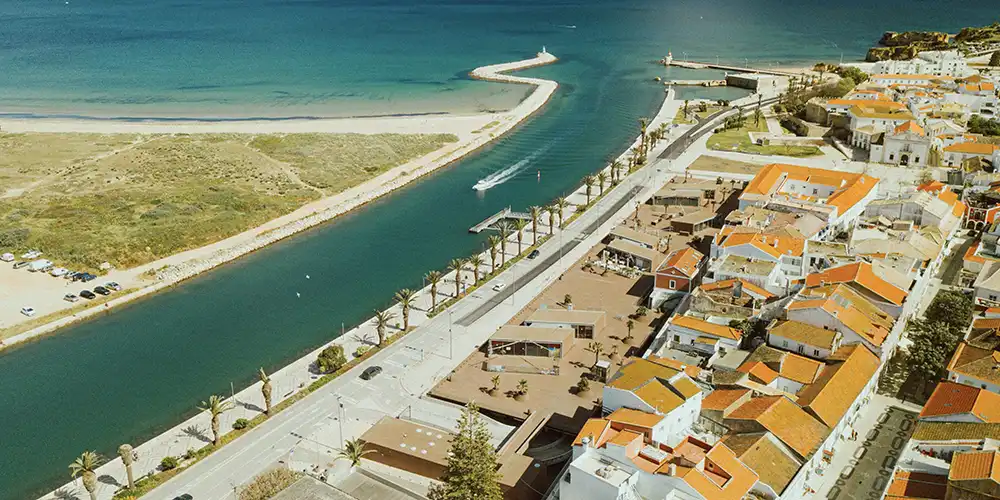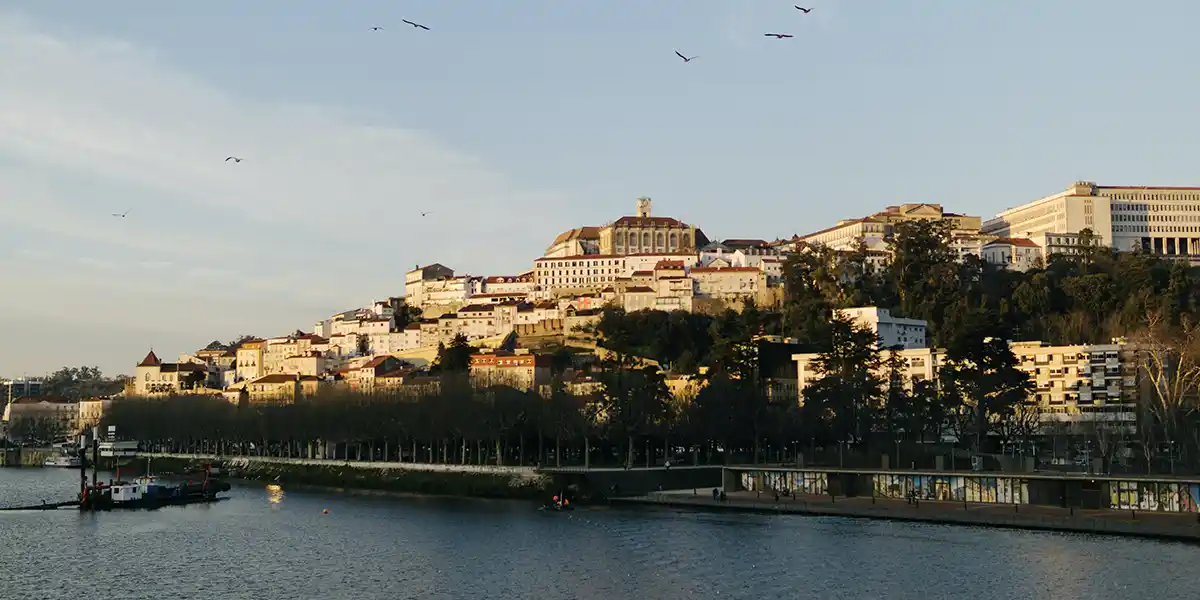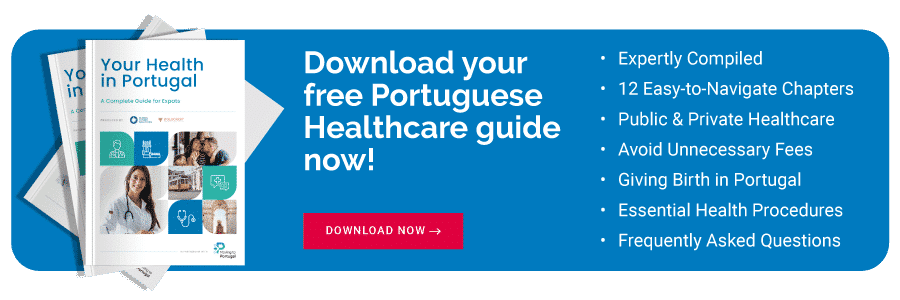Portugal has become an attractive option for many Americans seeking a new home in Europe.
This captivating country combines the warmth of a Mediterranean climate with a welcoming culture and a low cost of living, making it an ideal destination for those looking to enhance their quality of life.
Moving to Portugal from the USA requires navigating various visa requirements, understanding the cost of living, and preparing for a different lifestyle. There are several visa options available, including the D7 Visa for individuals with passive income, the Digital Nomad (D8) Visa for remote workers, and the Golden Visa for investors.
While the overall cost of living in Portugal is generally lower than in the US, it can vary significantly between different cities and regions.
We’ll cover essential topics such as visa options, residency permits, the cost of living in Portugal, and what to expect as an American expat.
In this article, you’ll learn about:
Moving to Portugal from USA has become an attractive option for many Americans considering retirement. Between 2017 and 2022, the number of Americans residing in Portugal grew by 239%, reaching nearly 10,000 individuals.
Portugal has since seen a surge in popularity among U.S. expats, with numbers reaching 14,000 in 2024, and it’s easy to see why so many are captivated by this enchanting country.
Portugal has become a top destination, offering a high quality of life in a stable European setting, as recent studies show that over 60,000 expats have decided to live in Portugal, with 11 percent of them being Americans, expats in Portugal.
According to our Global Intelligence Unit’s annual Global Retirement Report, Portugal came in first place in 2025. It notes that European countries such as Portugal, Spain, Austria, and France feature prominently among the safest and most welcoming, while also placing an emphasis on quality of life, healthcare, and overall living conditions.
A growing number of Americans are choosing to live in Portugal, attracted by its high quality of life, affordable cost of living, and friendly culture. While Americans can stay in Portugal without a visa for up to 90 days, longer stays necessitate obtaining a residency permit. Popular destinations for American expats include Lisbon, Porto, and the Algarve region.
Several factors contribute to its appeal:
High quality of life: Portugal is known for its relaxed pace, friendly locals, and a strong sense of community, making it a desirable place for those seeking a better work-life balance. Many expats in the country appreciate the welcoming environment and the opportunity to connect with others.
Access to quality healthcare: The Portuguese healthcare system is recognized for its quality and affordability. Residents can access necessary medical care without the financial burdens often found in other countries, ensuring a secure and healthy lifestyle for retirees.
Safety: So, is Portugal safe? Yes. Portugal is recognized as one of the safest countries in Western Europe, ranking seventh in the 2024 Global Peace Index. Low crime rates and a stable political environment are ideal for individuals and families seeking a secure place to call home. This safe country stands out among European countries, making it an attractive choice for relocation.
Strong education system: Portugal’s education system is highly regarded, with a strong emphasis on quality and accessibility. The country is home to reputable universities and a range of excellent international schools, making it an attractive destination for American families considering a move to Europe. The government’s commitment to education not only enhances the quality of life for residents but also contributes significantly to the overall appeal of relocating to Portugal.
Visa-free travel: Moving to Portugal provides the advantage of visa-free travel to other countries within the Schengen Area. This convenience allows residents to explore Europe’s diverse cultures and historical attractions easily.

Moving to Portugal as an American requires a temporary residence visa, while European citizens may not need a visa to enter Portugal. Several visa options are available for Americans looking to establish residency in Portugal. Here’s a breakdown of the best visa types for Americans moving to Portugal.
Portugal Golden Visa Program
The Portugal Golden Visa, or the Portugal Investor Program, is a five-year residency-by-investment initiative for non-EU nationals.
Launched in 2012, it aims to attract foreign investors to Portugal by allowing them and their direct family members to live and work there. After five years, participants can apply for permanent residency and Portuguese citizenship.
Recently, significant changes have been made to the program. As of 2023, purchasing real estate or real estate-related funds is no longer an eligible investment route. However, there are still several investment options available:
- Fund subscription: Contribute a minimum of €500,000 to a qualified investment fund.
- Cultural donations: Donate at least €250,000 for the arts or national heritage projects.
- Scientific research: Invest at least €500,000 in science or technology research.
- Job creation: Create and maintain ten jobs during the required period.
- Business investment: Invest €500,000 to establish or increase share capital in a company with job creation requirements.
Portugal D7 Visa
The Portugal D7 Visa, also referred to as the Portugal Retirement Visa is a key option for those moving to Portugal, particularly those seeking residency through passive income. Designed for non-EU nationals, this visa is ideal for retirees and entrepreneurs who want to relocate to an EU country without significant investment.
Key benefits of the D7 Visa include:
- No active investment/business involvement: The D7 Visa does not require significant investment or the management of a business in Portugal.
- Fast processing: The application process is efficient, facilitating quicker residency.
- Inclusion of family members: You can bring your family along, allowing them to benefit from the same residency status.
- Visa-free travel: The D7 Visa grants access to visa-free movement within the Schengen Area.
- Rights to live and work: Holders of the D7 Visa can live and work in Portugal.
Portugal D2 Visa
The Portugal D2 Visa is a residency program tailored for individuals moving to Portugal who wish to start a new business, expand an existing venture, or invest in entrepreneurial projects within the country.
This visa particularly benefits non-EU nationals looking to establish themselves in an EU country. Key advantages of the D2 Visa when moving to Portugal include:
- Business opportunities: D2 Visa holders can start a new business in Portugal, invest in existing companies, or engage in various entrepreneurial activities.
- Family reunification: The visa allows family members to join you, promoting a supportive environment.
- Visa-free travel: Holders benefit from visa-free access to the Schengen Area.
- Rights to live and work: The D2 Visa permits you to live and work in Portugal.
Portugal D8 Visa
The Portugal D8 Visa is a residency program designed for remote workers who want to live and work in Portugal. This visa is suitable for anyone with a stable, regular income, providing a pathway for non-EU nationals to establish their presence in an EU country.
Here are some of the key advantages of Digital Nomad Visas in Portugal:
- Right to live and work in Portugal: With this temporary stay visa, you can live in Portugal legally for a specific duration, typically up to one year. The tourist visa (Schengen visa) allows you to stay in the country for 90 days every three months.
- Visa-free travel across the Schengen Area: Portugal is part of the Schengen Area. Digital Nomad Visa holders can travel visa-free to other European Union states.
- Access to public services in Portugal: Holders of the Portuguese Digital Nomad Visa have access to public services in Portugal, including healthcare, education, and other social benefits.
- Pathway to EU citizenship: Digital nomads can apply for permanent residence and Portuguese citizenship after five years of legal residence in Portugal. To become a Portuguese citizen, you must pass a basic Portuguese language test (A2 level).
- Family reunification: The long-stay version of the visa allows for family reunification. Portugal Digital Nomad Visa applicants can bring family members, such as a spouse or dependent child, to Portugal.
After your visa has been granted, you can travel to Portugal and start building a new life. Generally, the visa is valid for four months and allows for two entries. During this time, you must attend your interview with AIMA (the date, place, and time are included with your visa) and have your biometric data collected. This all forms part of your temporary residence permit in Portugal.
About three weeks after the appointment, you’ll receive a temporary residence card, known as a Título de Residência, which serves as your official identification in Portugal and allows you to travel around the European Union without additional visas.
The temporary residence permit is valid for two years and can be renewed for another three years, after which you can apply for permanent residency. However, if citizenship is your ultimate goal, it’s worth keeping in mind that permanent residency is optional, not a legal prerequisite for naturalization.
Citizenship by naturalization
After five years of legally living in the country, you can apply directly for Portuguese citizenship (or for permanent residency, or for both at the same time), provided you meet the criteria.
It’s important to note that separate laws govern residency and naturalization. Immigration law allows you to apply for permanent residence, while Portuguese nationality law dictates the terms for citizenship, which is based on years of legal residence. There is no legal obligation to secure permanent residence before you apply for citizenship.
For both permanent residency and citizenship, you’ll need to demonstrate your integration into the country, and you’ll need to pass a basic Portuguese language test – among other requirements.
To apply for Portuguese citizenship, you need to submit several key documents, including:
- Clean criminal record: Obtain a certificate confirming you don’t have significant criminal convictions.
- Clean health record: Provide a health certificate indicating that you are in good health.
- Proof of Portuguese residency: Submit evidence of your legal residency in Portugal.
- Fluency in Portuguese: Show proof of an A2-level proficiency in Portuguese, for example, by passing the CIPLE (Certificado Inicial de Português Língua Estrangeira) test.
Once your citizenship is approved, you can request a Portuguese passport, which is one of the strongest in the world. According to our Global Intelligence Unit’s Global Passport Index, Portugal is ranked 28th, scoring higher than Monaco, South Korea, and Brazil.
 Portugal Passport Rankings
Portugal Passport Rankings
While one of the residency visas is a good way to acquire eventual citizenship, there are several other pathways to obtaining citizenship in Portugal. Here are some of the main routes available for Americans moving to Portugal:
European citizenship by descent
US citizens can acquire an EU passport by applying for Portuguese citizenship by descent. This means you may be eligible for citizenship if you prove you have Portuguese ancestors, such as grandparents or great-grandparents. The application process involves providing documentation that verifies your ancestry.
Citizenship through marriage
You can apply for citizenship after being married to or in a non-marital relationship with a Portuguese citizen for three years.
To qualify, you must provide documents proving your relationship, such as a marriage certificate, and demonstrate integration into the Portuguese community. Importantly, there is no minimum residency requirement for this route. Your application remains valid even if you divorce or separate in the future.
Wondering what it is like moving to Portugal as an American? Here’s an overview of what you can expect when you obtain permanent residency:
- Americans living in Portugal can enjoy the country’s warm Mediterranean climate.
- The quality of life includes excellent education and healthcare services that attract foreign nationals.
- US citizens will experience breathtaking landscapes, including beautiful beaches and picturesque historic towns along Portugal’s coastline in Western Europe.
- Most cities in Portugal, like Lisbon and Porto, boast vibrant communities with friendly locals. This creates a supportive atmosphere for expats from around the globe, making integration easier.

Portugal is praised for its relatively affordable cost of living, especially when compared to other European countries, making moving to Portugal an attractive option for many.
The stable Portuguese economy and comparatively low living costs make moving to Portugal incredibly alluring to expats. Let’s briefly compare the cost of living between the US and Portugal:
- For example, a cappuccino in New York costs an average of €4.84, while it costs around €1.87 in Lisbon—a +159.2 percent price difference.
- Fresh produce is readily available at local markets in Portugal and is significantly more affordable than in the US.
Moreover, after moving to Portugal, you’ll notice that the further you travel from the main cities, the cheaper the cost of living becomes, making it easier for expats living in Portugal to save money. Lisbon will always be more expensive than just about anywhere else in Portugal, similar to how cities like New York and San Francisco are pricier than most US cities.
Additionally, public transport options in Portugal are often reliable and affordable, further enhancing the overall quality of life for Portuguese people and expats alike. Our detailed Transport Portugal guide can help you discover more about how best to get around the country.
As a guide, here’s a quick glance at the cost of living in Lisbon versus Washington, D.C:
Portugal’s job market has shown positive signs of recovery and growth, driven by increased foreign investment in various sectors, including the tourism sector and technology.
The unemployment rate has been gradually decreasing, and major cities like Lisbon and Porto typically offer more employment opportunities than some rural areas. Moving to Portugal can provide access to these growing job markets:
- Medical
- Law
- Media
- Accounting
- Engineering
However, many companies also value English proficiency, which can be sufficient in certain international companies and industries. English proficiency is particularly advantageous for many foreign companies and English-speaking investors based in Portugal. It creates ample job opportunities for English speakers, especially in IT and software engineering professions.
Recently, Lisbon has experienced a boom in tech and start-ups. The Web Summit, the largest tech festival in the world, even moved its event to Lisbon in 2016 to illustrate this growth. Moving to Portugal can lead to exciting professional opportunities.
Portugal prioritizes jobs for EU members. Therefore, unless you have Portuguese citizenship, you’ll need to apply for a Portugal Work Visa or a residence permit to be eligible to work in the country. A good option is the Portugal HQA Visa, for highly qualified professionals. For digital nomads, the Portugal Digital Nomad Visa is a great bet.
The average salaries in Portugal are generally lower than in many other EU countries, but the cost of living is also lower, making it appealing to expats. Local people are known to be friendly and welcoming, which helps newcomers integrate into the job market and community. Here’s a quick glance at the average salaries for in-demand jobs in Portugal compared to the EU:
Portugal is known for its warmth and friendliness, making it an inviting place for newcomers. Social connections are vital in Portuguese culture, fostering meaningful relationships and a strong sense of community.
Moving to Portugal offers a chance to engage with locals who value family importance and maintain strong ties.
Family gatherings, especially during festivals and community celebrations like the Saints’ Day festivities, highlight the spirit of togetherness. The country provides a relaxed pace of life, which many find safe and welcoming. To fully embrace this culture, many choose to learn Portuguese.
The culinary scene features delicious traditional Portuguese food that brings people together. In larger cities, the vibrant city center enhances expat integration, making it easy to enjoy local life. Moving to Portugal means immersing yourself in a rich, community-focused environment.
Learning Portuguese
While you can get by in English in Lisbon, Porto, and the Algarve, especially in younger and tourist‑facing circles, learning at least basic Portuguese changes how you experience the country.
It opens doors socially, makes daily tasks at the bank, health center, or town hall far less stressful, and is an important gesture of respect that locals genuinely appreciate. Many expats start with language schools or online courses, then build confidence through language exchanges, conversation meetups, and consuming Portuguese media, from radio and podcasts to local TV.
Over time, speaking Portuguese also becomes relevant for long‑term integration, as conversational ability helps with job opportunities and is a formal requirement if you eventually apply for citizenship.
Crucially, Portuguese is not just nice to have: a basic A2 level of Portuguese is required if you want to move from temporary status to permanent residency and eventually apply for Portuguese citizenship, so the sooner you start learning, the easier your long‑term integration becomes.
Internet in Portugal
Portugal is a very connected country, and fast internet has become part of everyday life rather than a luxury. In cities and larger towns, fibre‑to‑the‑home is widespread, with major providers like MEO, NOS, and Vodafone offering packages from 100 Mbps up to 1 Gbps, which is more than enough for streaming, remote work, and video calls.
Cafés, coworking spaces, and hotels almost always have Wi‑Fi, so it is easy to stay online while you are out and about, although speeds can dip a little in older neighborhoods and more rural areas.
Mobile data is affordable and reliable, and Portugal now ranks among the better performers globally for both fixed and mobile internet speeds, which is one reason the country is so popular with digital nomads.
Are you wondering where most American expats live in Portugal? Lisbon, Porto, Cascais, and the Algarve region are particularly popular. Here are some of the most popular Portuguese cities and areas where Americans living in Portugal with a residence permit tend to base themselves:
Lisbon

The capital city of Portugal, Lisbon, is a major hub for expatriates, particularly digital nomads. Neighborhoods such as Chiado, Bairro Alto, and the historic Alfama district are attractive due to their vibrant atmosphere, urban amenities, and proximity to the city center. The cost of living in Lisbon may be considerably higher than in other Portuguese cities. Still, the capital’s charm is worth the price tag, which remains significantly lower than most cities in Western Europe. Public transportation in Lisbon is extensive, making it easy to navigate. Living in Lisbon offers a true big city experience.
Porto

Living in Porto, Portugal’s second-largest city, also draws expats. The Ribeira district, situated just over 2 kilometers from the city centre and known for its historic charm and riverfront views, is a notable expat area. Public transportation options make commuting convenient for those in the area. Living in Porto provides a vibrant yet relaxed atmosphere in a big city.
Algarve

The Algarve region in southern Portugal is a popular tourist destination famous for its gorgeous beaches, golf courses, and pleasant climate. Many foreign residents, including Americans, often choose cities like Faro, Albufeira, and Lagos as their new homes. Public transport is available, making living in the Algarve convenient for expats.
Cascais and Estoril

Cascais and neighboring Estoril sit on the so‑called “Portuguese Riviera,” offering US expats an easy blend of coastal living and city convenience that is hard to match. You have sandy beaches and access to the Sintra‑Cascais natural park on your doorstep, yet central Lisbon is only about 30–40 minutes away by train or car, which makes commuting or enjoying the capital’s culture and flights straightforward.
Coimbra

Living in Coimbra is another option for American expats. One of Portugal’s oldest cities and home to one of Portugal’s oldest universities, Coimbra offers a blend of history, culture, and a slower pace of life. The city also has good public transport options.
Madeira

The island of Madeira, an autonomous region of Portugal, has also become a choice for those looking for a unique island lifestyle. The island even has a digital nomad village that welcomes thousands of remote workers from around the globe. Public transport on the island helps residents get around easily.
A NIF (Número de Identificação Fiscal) is an individual tax identification number in Portugal. Also known as a contribution number (Número de Contribuinte), the NIF is essential for carrying out any economic activity in Portugal, such as paying taxes, opening a Portuguese bank account, receiving a bank statement, or signing any contract. In short, you need it for almost all tax purposes and financial transactions.
While it is not legally mandatory, the NIF number is as essential as a Social Security number in the United States.
You can apply at your local Portuguese tax office or citizen shop if you’re a Portuguese resident. If you’re applying for a NIF number as a non-European Union national who is not a Portuguese resident, you’re required by law to appoint a fiscal representative for your NIF application.
US citizens can open a bank account in Portugal, but before you do, you must obtain a NIF to carry out any daily financial transactions in the country. A fiscal or lawyer representative can help you apply for your tax identification number on your behalf.
Opening a bank account in Portugal is the same as opening a bank account in the US. Most of the main banks in the country offer business and corporate banking as well as individual banking. For foreigners, opening a bank account can be beneficial as it can make the process of paying taxes, getting paid by a Portuguese company, and obtaining permanent residency simpler.
To open a bank account, you’ll need to show the following documents:
- Proof of ID (e.g., passport)
- Proof of address (e.g., recent utility bill or letter received in the previous three months, with your name and address both visible)
- Confirmation of NIF
- Proof of income or employment (e.g., recent payslip or employment letter). You can still open a local bank account if you are not employed. You must show proof of registration with the Portuguese employment center (Centro de Emprego) or that you have an assured work contract.
- A Portuguese phone number for SMS activation: This may not be required and depends on the bank. Some banks also accept international phone numbers.
- A minimum cash deposit of €250-300 is common, although this will depend on the bank.
Portugal’s tax system is comprehensive, with various taxes targeting different income sources and activities. It also provides specific incentives and benefits for new residents and businesses investing in certain sectors.
American citizens living in Portugal are generally taxed in both countries: Portugal taxes you based on residency, and the US continues to tax you on worldwide income, with treaty and credit mechanisms to reduce double taxation. If you reside in Portugal for 183 days or more a year, like on the D7 Visa Portugal, you are considered a tax resident.
As a US citizen, you must file an annual US tax return (Form 1040) and report worldwide income every year, regardless of where you live. In Portugal, you must also report worldwide income and pay progressive IRS (personal income tax) on it, roughly 13–48 percent depending on income band, while non‑residents usually pay a flat 25 percent on Portuguese‑source income only.
Portugal double-taxation treaties with the US are designed to prevent the same income from being fully taxed twice and to define which country gets primary taxing rights on different income types.
As a result, you may be able to reduce or eliminate US income tax on earned income abroad through the Foreign Earned Income Exclusion (Form 2555) and/or claim a Foreign Tax Credit (Form 1116) for Portuguese tax paid.
Most US expats in Portugal pay normal Portuguese tax on Portuguese‑source earnings and then use the tax treaty and foreign tax credits on the US return so that their overall tax is not duplicated.
When moving to Portugal, American expats face an important decision: renting or buying a home. Each option offers distinct advantages that cater to different lifestyles and needs.
Renting in Portugal
Renting in Portugal provides flexibility, which is especially valuable for newcomers. Various accommodations are available, from bachelor apartments to larger T1 (one-bedroom apartment), T2, and T3 units, as well as full homes. Portugal’s low rental prices make it an attractive option for many.
In a big city like Lisbon, rental prices may be considerably higher compared to smaller towns or the outskirts of bigger cities. Most rental apartments do not have central heating, so expat tenants should plan accordingly for the cooler months.
Living in a rental allows you to explore different neighborhoods and determine where you feel most at home before committing to a longer-term arrangement.
Buying property in Portugal
On the other hand, buying property in Portugal can be a smart long-term investment. For those considering a permanent move, owning a home provides stability and the potential for financial growth.
Real estate property prices can vary depending on location; a big city will generally have higher costs than estates and villages outside. However, bigger cities are convenient, as public transportation is easy to access, and there are more international speakers. Many Portuguese people are accustomed to speaking English, making integration smoother.
Investing in property secures a residence and opens doors to residency options. With a robust real estate market and various options—from urban flats in Lisbon to charming homes in smaller towns—American expats can find a place that fits their lifestyle.
Whether you choose to rent or buy while moving to Portugal, navigating the process with expert guidance is crucial. Hiring a knowledgeable real estate agent can make a significant difference if you don’t speak English or Portuguese.
It’s essential to verify the AMI license in Portugal for the real estate agent you intend to work with.

The education system in Portugal is highly regarded and consists of both public and private institutions.
The Ministry of Education oversees education from preschool through secondary school, while school groups collaborate with local municipalities to allocate funding and define the curriculum. The Ministry of Science, Technology, and Higher Education is responsible for overseeing higher education policies and budgets.
In Portugal, families can choose between state (tuition-free) and private (fee-paying) education. Although Portuguese is the primary language of instruction in state schools, expatriate families have numerous options to enroll their children in international schools, where classes may be conducted in their native language.
This choice can be particularly advantageous if you plan to return to your home country, as it helps your child become familiar with the curriculum, making the transition smoother.
Public schools up to a certain education level are tuition-free for citizens and foreign residents alike. However, if you’re considering private schooling, be prepared for varying costs, with the private school tuition ranging between €400 and €500 per month from primary to high school level.
Moving on to higher education, public university institutions generally charge tuition fees for Bachelor’s and Master’s programs, typically falling between €1,000 to €1,500 per academic year for EU/EEA students. If you’re considering an international school for your children, be prepared for higher tuition fees. Monthly costs typically hover around €800.
The minimum monthly fee at an international school in Portugal is around €40, but these prices can escalate to as much as €1,800 depending on the school level. Make sure to also factor in potential costs for uniforms, books, and other school supplies as you budget for education in Portugal.
In our Global Intelligence Unit’s Global Education Report, Portugal ranked 25th globally. The report states that Portugal (as well as Italy and Spain) provides low-cost education and vibrant lifestyles, though challenges such as high youth unemployment and lower wages can constrain career growth. These countries, however, are actively enhancing their startup ecosystems and digital industries to attract and retain talent.
International schools in Portugal
International schools in Portugal are excellent, with several international schools in Lisbon, the Algarve, and other major cities. Notable options for students include:
- Carlucci American International School
- International Christian School of Cascais
- Lisbon International School
- Oeiras International School
- British School of Lisbon
These schools offer diverse curricula tailored to international students, including:
- American Curriculum
- British Curriculum
- French Curriculum
- German Curriculum
- International Baccalaureate (IB)
Universities in Portugal
Higher education in Portugal is renowned globally. 18 Portuguese universities are featured in the QS World University Rankings 2025. The top five universities are:
- University of Porto
- University of Lisbon
- University of Coimbra
- NOVA University Lisbon
- University of Aveiro
Public healthcare in Portugal
The Portugal healthcare system is known as the Serviço Nacional de Saúde (SNS). Depending on your circumstances, this system provides medical care at low to no cost. It operates through a network of public hospitals and community health centers, ensuring residents receive comprehensive care. If you live in Portugal, this option is available for those who pay for social security and their dependent family members. Only legal residents and Portuguese citizens can register in the public healthcare system, while tourists are not eligible but can still receive emergency treatment if necessary.
Private healthcare
Partly due to the crowded public healthcare system, many retirees in Portugal opt for private healthcare. If moving to Portugal from outside the EU, you will need private health insurance when you move to Portugal. Fortunately, private health insurance is quite affordable, with prices ranging from €30 to €150 per month, depending on the level of coverage and the individual’s age. This option provides greater flexibility and access to a wider range of services.

Customs
Americans moving to Portugal should be aware of the customs regulations governing the moving and shipping of goods across the Atlantic. Before moving to Portugal, you must visit your local Portuguese Consulate and request a Certificado de Bagagem (Luggage Certificate).
This certificate is obtained by providing a complete inventory of the possessions and household goods you plan to take. If living in Portugal, you’ll likely find that most everyday items are available, reducing the need to bring everything from home.
Shipping and flying goods
Several options are available when moving your household goods and belongings to Portugal. Shipping by sea is the most wallet-friendly option, although it is also the slowest. Expect to receive your items within one to three months. In contrast, shipping by air is the fastest and most expensive choice, delivering your items within a week.
When choosing between these methods, you’ll need to weigh your options between expenses and time. Living in Portugal means you might need to make these decisions based on your timeline. It is also possible to import a car to Portugal, but the process can be somewhat complicated.
The price for shipping a meter cubed 250 kg (about 551.156 lbs) container of household items to Portugal:
Storage
For home goods storage, you may require a place to keep your items on either a short-term or long-term basis. Unfortunately, your options in Portugal may be limited; it has one of the lowest per capita self-storage facilities in the EU. Consider your needs carefully, as finding adequate storage can be a challenge. Living in bigger cities can often provide more options, so understanding the local landscape is crucial when living in Portugal, especially if you plan to relocate your possessions.
Pets
If you’re moving to Portugal with pets, be aware that the country adheres to European rules for bringing animals into the nation. You can bring up to five animals, provided it’s for non-commercial purposes.
The regulations differ based on whether you come from within or outside the EU. Only dogs and cats from America can accompany you. Your pets must be microchipped and vaccinated against rabies at least 21 days before moving.
While these breeds are allowed into Portugal, at the Traveler’s Point of Entry, the owner will need to sign the following:
- Statement of responsibility if staying in Portugal for less than four months
- A notification if staying longer than four months
Vaccinations
Routine vaccinations like measles, mumps, rubella, diphtheria, tetanus, pertussis, varicella (chickenpox), and polio are mandatory. A yearly flu shot is also recommended to maintain good health, particularly for those with children or older individuals.
Driving in Portugal as an American
For US citizens, driving in Portugal starts out relatively simple and then becomes more administrative once you settle in as a resident. As a short‑term visitor, you can drive on your valid US license for the duration of your legal stay.
Once you become a Portuguese resident, however, your US license is no longer treated as a long‑term document: you are expected to register with IMT (the Portuguese mobility authority) and apply to exchange your American license for a Portuguese one within the legal deadlines, which are often counted from the date your residence is issued.
In practice this means gathering a medical certificate, photos, and official translations if required, and being prepared that, in some cases, IMT may ask you to pass theory and/or practical exams because the US is a non‑EU country and not all state licenses are treated identically.
On the road, speed limits and alcohol rules are stricter than in many US states, enforcement with cameras is common, and serious infringements can affect your Portuguese license status.
No country is without its ups and downs. Here’s a brief overview of the pros and cons of moving to Portugal as an expat:
Pros of living in Portugal
- Great weather in most parts of Portugal most of the year
- Friendly people and a local culture that welcomes foreigners
- Delicious fresh seafood and a thriving gastronomy scene
- Lower cost of living and less expensive real estate prices than in many other Western European countries
- Low crime rates and a democratic state (Portugal is one of the safest countries in the world)
- Many tourist attractions to explore (including several UNESCO World Heritage sites)
Cons of living in Portugal
- Neither US health insurance nor Medicare will cover you here, particularly if you’re from the US. So, you’ll likely have to invest in some private international health insurance. If you become a resident, however, you can access the Portuguese healthcare service (SNS), which is very affordable, and apply for social security through the Social Security Agency.
- Often limited availability of goods and services, especially in rural areas
- Moving away from friends and family has the potential for homesickness, loneliness, and culture shock
- Most Portuguese people speak English, but learning Portuguese is a must, as it can help you integrate into the community and complete your daily tasks.
Why choose Global Citizen Solutions for your Immigration Visa?
GLOBAL APPROACH BY LOCAL EXPERTS
- GCS has offices located across Portugal.
- Members of the US-Portugal and UK-Portugal Chambers of Commerce in Portugal, and the Investment Migration Council (IMC).
- Our expert team can help you throughout your journey to secure your Visa.
100% APPROVAL RATE
- Our successful track record in applications provides reassurance to applicants.
- We have helped clients from more than 35 countries secure residency in Portugal.
ALL-ENCOMPASSING SOLUTION
- With a single channel of communication, our approach ensures that you have complete clarity on your application.
- Our BeGlobal® Onboarding System allows for a total flow of information.
TRANSPARENCY AND PRIVACY
- Our pricing is clear and detailed, you will not face any hidden costs.
- All data is stored within a GDPR-compliant database on a secure SSL-encrypted server.





